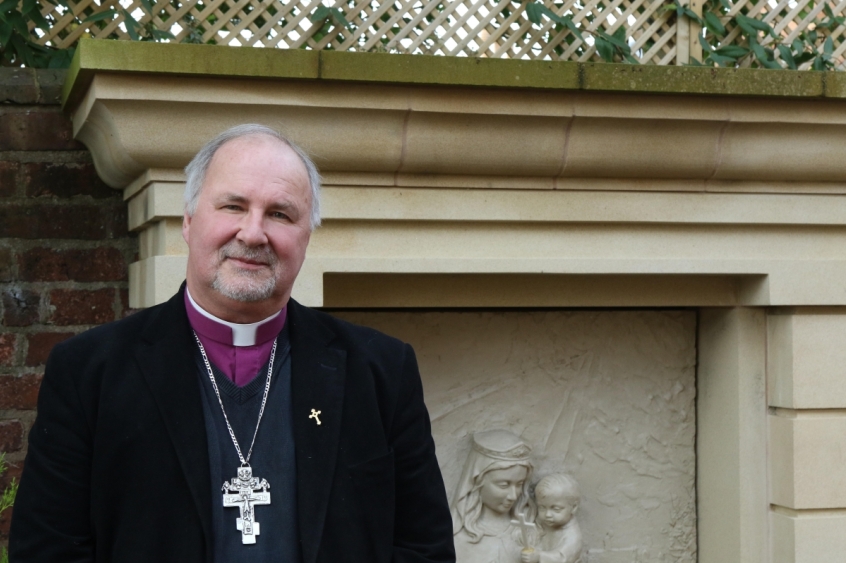
A service was taking place on Sunday to receive former Queen's chaplain Dr Gavin Ashenden into the Catholic Church.
Dr Ashenden was a chaplain to the Queen from 2008 to 2017 but stepped down from the post because of his objections to a reading of the Koran at St Mary's Episcopal Cathedral in Glasgow, Scotland, that denied the divinity of Christ.
He also left the Church of England, where he had been a member of the General Synod for 20 years, but has continued his ministry online, running a popular blog where he frequently challenges liberal perspectives.
His wife, Helen, became a Catholic in Shrewsbury Diocese two years ago.
The Catholic Bishop of Shrewsbury, the Rt Rev Mark Davies, who is officiating the confirmation service, said: "It is very humbling to be able to receive a bishop of the Anglican tradition into full communion in the year of canonisation of St John Henry Newman.
"It has been a special joy to accompany Gavin Ashenden in the last steps of a long journey to be at home in the Catholic Church.
"I am conscious of the witness which Gavin Ashenden has given in the public square to the historic faith and values on which our society has been built. I pray that this witness will continue to be an encouragement to many."
Dr Ashenden said he believed that "at this point in history, only the Roman Catholic and Orthodox expression churches have the capacity to defend the faith as our circumstances require".
Speaking to Christian Today about his decision to convert to Catholicism, he said that those with more traditional beliefs had been "marginalised" in the Church of England and that it had abandoned 2,000 years of Christian heritage to "placate a kind of secular progressive spirit".
"I was a member of General Synod for 20 years and that gave me an opportunity to be thoroughly realistic about what the nature of the struggle for the Church's soul was. And I was part of a group of people who negotiated attempts at real inclusivity," he said.
"When this failed and I realised that the liberal progressives were very uncomfortable with traditional Christianity and would slowly, in a determined way, marginalise those with a more traditional belief, I realised that the battle couldn't be won. And sadly I watched it being lost as time went by."













